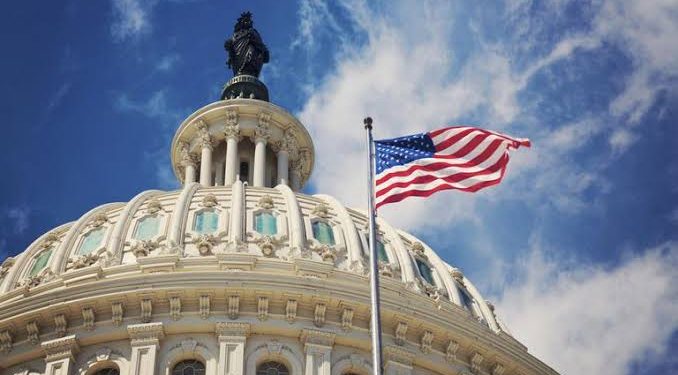The House Financial Services Committee has released a discussion draft for stablecoin legislation. The bill proposes a definition of “payment stablecoins,” specifying which types of entities can issue them and how these companies should handle reserves. This new version of the bill does not include algorithmic stablecoins but reiterates that issuers must either be a subsidiary of a federally insured depository institution or a state or federally regulated nonbank company.
Stablecoins Must Be Fully Backed
The discussion draft also clarifies that stablecoins must be fully backed by safe reserves that are subject to monthly reviews by registered accountants, eliminating the possibility of math-backed stablecoins being able to comply. The recent declaration about stablecoins being classified as non-securities means that either the SEC or the Commodity Futures Trading Commission will need to create guidelines around this decision.
The bill proposes that stablecoin issuers’ chief executives should be held liable for issuing faulty information about stablecoin reserves. They would be required to sign off on the monthly numbers and could be held criminally liable if the reports are known to be false.
State-Based Licensing for Issuers
How much control is granted to federal and state regulators has been one of the most divisive issues with the law since last year. This updated version suggests a method for issuers to get state-based licensing while retaining the authority for state-level enforcement. However, the Federal Reserve has the ability to overrule any disagreements regarding enforcement.
The suggested law does not have the required immediate agreement from both political parties to pass. The committee’s highest-ranking Democrat, Rep. Maxine Waters, stated during a hearing last week that the legislative process should start over. She said that the Republicans had created this draft without consulting the Democrats, which dissatisfied her.
According to a senior Republican staff member, Waters’ staff was given a copy of the draft in hopes of initiating new negotiations. The Senate Banking Committee, chaired by Sen. Sherrod Brown (D-Ohio), has not taken any action on stablecoin legislation yet, but his spokesperson has stated that they will examine the various efforts being made. Any proposed stablecoin bills will also need to go through the committee.
Republican Lawmakers Working on Crypto Regulation
The financial services committee of Rep. Patrick McHenry (R-N.C.) has been working on separate legislation to control the cryptocurrencies market structure, which is anticipated to solve significant issues with the regulation of digital assets by numerous agencies. On April 27, one of the subcommittees is scheduled to hold a hearing on this subject.
Crypto Regulation Negotiation
This bill holds the potential to shape the future of stablecoin regulations and significantly impact the broader crypto market through negotiation and potential discussions with Democrats. As stablecoins are critical to the cryptocurrency ecosystem, their regulations have far-reaching implications for users and the overall stability of the financial system.
If negotiations happen with Democrats, they can suggest changes to the bill that could affect how stablecoins are regulated. Stablecoins are a kind of digital money that’s connected to things like regular money or goods. They are useful because they don’t change value too much and let people move money quickly and cheaply.
Making rules for stablecoins is important because it helps to keep them safe and stable. The way stablecoins are regulated can also have an impact beyond just the world of digital money and affect the bigger financial system. That’s why it’s crucial to have clear rules in place to make sure they don’t cause any problems for the economy
Final Thoughts
The House Financial Services Committee has proposed new stablecoin legislation in the form of a discussion draft. The bill clarifies that stablecoins must be fully backed and defines “payment stablecoins.” It also proposes state-based licensing for issuers and makes the chief executives of stablecoin issuers liable for issuing faulty information about stablecoin reserves. The bill may mark a new starting point for negotiations with Democrats, although it is unlikely to have immediate bipartisan support. Republican lawmakers are also working on legislation to regulate the crypto sector’s market structure.










